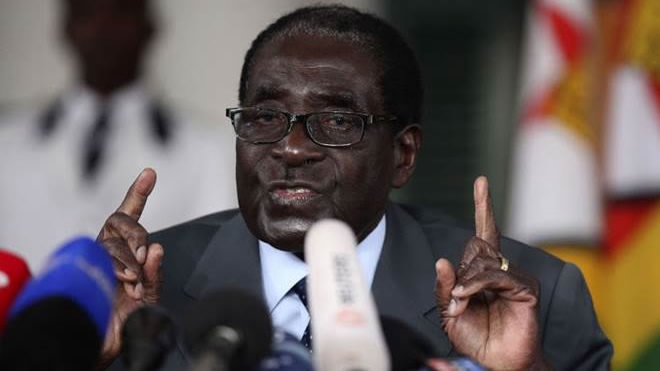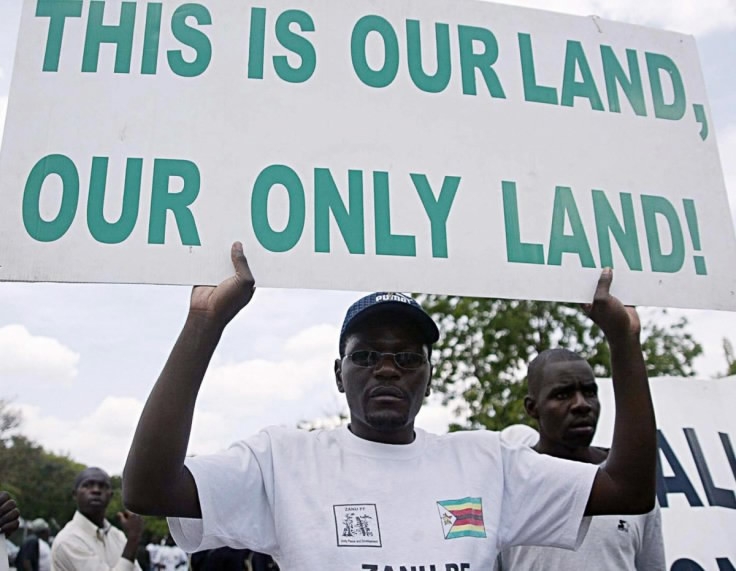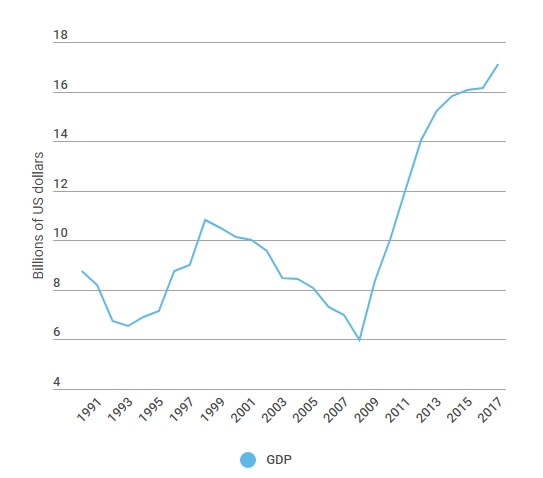
Politics
14:12, 20-Nov-2017
Has Mugabe's controversial land reform failed Zimbabwe?
CGTN

Zimbabwe's 93-year-old leader Robert Mugabe has ruled this country since its independence in 1980, but his decades-long grip on power is slipping, with his own party tolling him to resign.
During his administration, Mugabe launched a "Fast-Track Land Reform," which aimed to take land from white farmers and redistribute it to landless blacks. Economists see the land reform as a key factor in Zimbabwe's economic meltdown since 2000, but Mugabe maintained that his administration was correcting colonial imbalances.
Mugabe signed the Lancaster House Agreement before Zimbabwe gained its independence from Britain in 1980. This agreement provided the constitutional backbone for Zimbabwe's independence and also imposed a 10-year ban on any Zimbabwean land reform or distribution of farmland.

Members of Robert Mugabe's ruling party gather in the streets of Harare in November 2006, in support of the president's land reform. /AFP Photo
Members of Robert Mugabe's ruling party gather in the streets of Harare in November 2006, in support of the president's land reform. /AFP Photo
The best farmland used to be reserved for the white population under the British rule, and blacks worked on the farms as low-paid laborers.
In 2000, President Robert Mugabe launched the "Fast-Track Land Reform," which is aimed to take land from white rich farmers and redistribute it to poor and landless blacks. The government forcibly evicted some 4,800 white farmers and many black commercial farmers from their land.
An estimated seven million hectares were seized. Mugabe said the seizures were needed to compensate blacks for years of colonial abuse. No compensation was paid to the land owners.
His critics say the land was unfairly handed out to his political allies and supporters. Some of the best acreage fell into ruin because senior ruling party officials who took it over had no farming expertise. Other farms also failed because they were given to small producers with no money to pay for fertilizer and equipment.
In the 2000-2001 fiscal year, Zimbabwe's total agricultural output dropped by 60 percent and real GDP plunged 45 percent in the decade to 2009. Farm production collapsed and, by 2008 output volumes, were two-thirds below their peak levels in 2000. Although there has been a subsequent recovery, production is still down at least a quarter even after a bumper harvest last year.

CGTN Graphic
CGTN Graphic
In 2016, Zimbabwe suffered through a country wide food shortage. Severe drought and tough weather conditions plagued the country.
Following the collapse of the economy, 3.1 million Zimbabweans fled overseas.
Mugabe said the land redistribution program is a success because it addressed the injustices of colonial and white-minority rule.
"Most of the land which used to be in the hands of the settlers is now in the hands of our own people," Mugabe told the state-owned Zimbabwe Broadcasting Corp., in an interview to mark his 93rd birthday, "What there is now for us is to ensure there won’t be any retrogression, that those who have been given the land will keep it, will use it, cultivate it properly and ensure it is made productive."
Months before the military takeover, Mugabe had threatened a new round of land seizures from Zimbabwe's white farmers.
10898km

SITEMAP
Copyright © 2018 CGTN. Beijing ICP prepared NO.16065310-3
Copyright © 2018 CGTN. Beijing ICP prepared NO.16065310-3